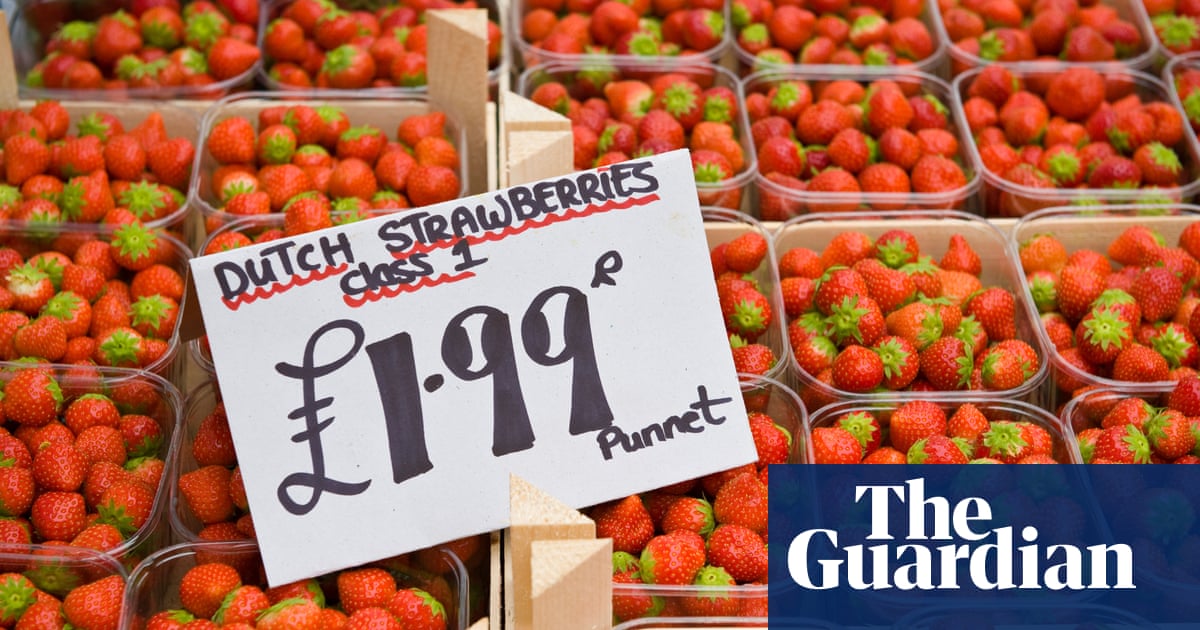
Livestock and live shellfish exports from the UK to mainland Europe are at a standstill as producers struggle with post-Brexit transport conditions.
In 2019, excluding lamb and cattle traded between Northern Ireland and the Republic of Ireland, a combined 31,000 cattle, sheep and goats were exported from the UK to the EU mainland. About 5% would have been exported for fattening for slaughter and the rest for breeding, the National Farmers’ Union (NFU) estimates.
National Pig Association (NPA) data shows about 12,000 breeding pigs were shipped from the UK to the EU in 2020. The UK does not export pigs for slaughter, the NPA said, although 1,000 to 2,000 pigs are sent from Great Britain to Northern Ireland each year when extra slaughter capacity is needed.
Since 1 January, no cattle, sheep or goats have left the UK for mainland EU markets, the NFU and NPA said.
“There have been no live exports of any [cattle, sheep or goats] since 1 January,” said John Royle, the NFU’s chief livestock adviser. “That’s because there are no border control posts [BCPs] for them at EU mainland ports.” Royle put the value of UK live food animal exports at between £20m and £30m in 2019.
Border control posts are where live animal paperwork and welfare is checked on arrival in the EU. Now that the UK is a third country for EU trade purposes, BCP checks are required.
Breeding pigs face the same problem. Up to 1 January, most UK breeding pig exports went from Dover to Calais on the P&O ferry, said Zoe Davies, NPA chief executive.
Now, post-Brexit, Davies said Calais would continue to take in UK horses, pets and chicks, “because they have a small BCP there that can cope with those. But they don’t feel its big enough to cope with pigs which come in groups of 200.”
“We flagged [the BCP issue] with Defra [the UK Department for Environment, Food and Rural Affairs] last year in June or July. But they basically said it was our problem,” Davies said. Since then, the NPA and NFU have been working together on finding EU ports willing to set up the control posts.
News of the live export standstill comes in the midst of a UK government consultation aimed at banning the export of live animals from England and Wales for slaughter and fattening. Areas outside the consultation’s remit include livestock for breeding, poultry and transport between England and Wales and Northern Ireland.
Royle added that the government consultation was having an additional chilling effect. He said it was “pretty clear” the UK government wanted to end the trade for fattening and slaughter.
Live mollusc exports from the UK have been hit equally hard. “Up to 31 December there was a trade in live mussels and other live bivalves like oysters, cockles and clams that was worth £20m to £30m,” said James Wilson, who farms mussels on the Menai Strait in north Wales, Britain’s largest mussel-growing area.
Since 1 January, bivalve exports have been suspended indefinitely, Wilson said, owing to EU water quality rules for third countries that now apply to the UK.
In Scotland, exports of male calves, which are of little value to dairy farmers, have also halted for a range of reasons unrelated to Brexit. The last shipment left in November 2019.
A Scottish government spokesperson said the trade had stopped because of a number of factors. Fewer male dairy calves were being born, owing to the greater use of sexed semen, for example, and more male dairy calves were being kept for rearing in the UK.
The Scottish government’s own consultation on restricting the live animal export trade is due to conclude on 26 February.
Responding to concerns about the collapse of live farm animal exports, Defra stated in an email that since 1 January consignments of cattle and equines have in fact been exported to the EU. Although the number of livestock exported was not given, Defra said the animals went from the UK to the Irish port of Rosslare, which has a BCP.
But Royle said that live export of farm animals to mainland Europe had “effectively been stopped because of Brexit, and can only resume if we establish BCPs on the EU mainland”.
Animal welfare can be severely compromised by live transportation, and the longer the journey the greater the risks. Compassion in World Farming’s chief policy adviser, Peter Stevenson, said he was “delighted” that the “inhumane” live export trade had “at least for now largely come to a halt”.
There have not, as yet, been any reported disruptions to the trade in day-old chicks, exported from Dover to Calais for breeding, a spokesperson for the British Poultry Council said. The UK exports tens of millions of chicks a year in an industry that was worth £139m in 2018.
Asked about live bivalve exports, Defra said it was in consultation with producers and the EU to ensure the trade could “continue securely”.
Defra added that molluscs such as oysters, mussels, clams, cockles and scallops could continue to be exported to the EU if they were harvested from class A waters. Wilson said less than 1.5% of English and Welsh waters were currently classified as class A for live molluscs.
Earlier this week, Defra confirmed it was putting in place a £23m compensation package for firms exporting fish and shellfish to the EU that can show they have suffered “genuine loss”.












